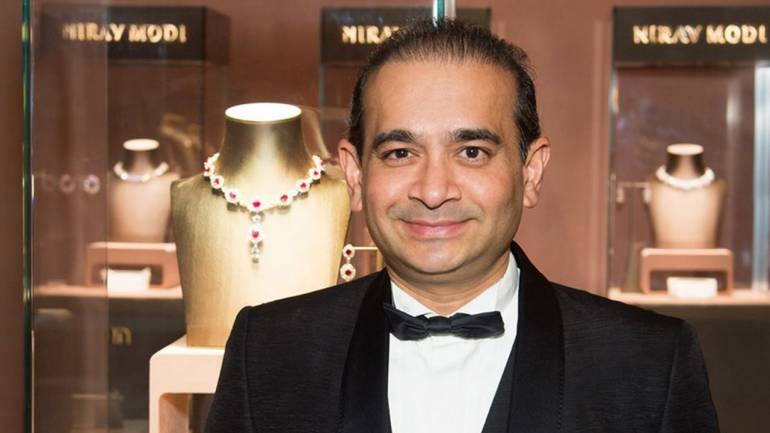
There is a pattern to mega fraud cases- involvement of bank officials and government

“At present, the bad debt of these Banks is greater than that of the GNP of the 137 countries in the world
“The data shows that between years 2012-2013 and 2016-2017, Indian banks saw a total number of 22,949 instances of fraud, with total losses to the banks amounting to 10.8 billion dollars.
“The deep mystery surrounding some of the biggest fraud cases is that many of these perpetrators were simply allowed to flee the country, including this one! Nirav Modi and his accomplices appeared to have fled India just before Punjab National Bank filed the complaint with the CBI on 29th January 2018.
“The bankruptcy declarations by jeweler Nirav Modi’s companies — Firestar Diamond Inc, A Jaffe Inc and Fantasy Inc — may offer some clues to where the money went in the ₹12,622-crore Punjab National Bank.
According to a Chapter 11 filing, A Jaffe owes more than $6 million to “unsecured creditors” in the United Arab Emirates (UAE) — Pacific Diamonds and Tricolor Diamonds FZE. The CBI FIR names these two as “exporters” who were beneficiaries of the letters of undertaking issued by the PNB employees accused of perpetrating the fraud along with Modi, his uncle Mehul Choksi, also a jeweler, and their companies.
“Punjab National Bank, India’s second-largest bank, is known as a Public Sector Bank (PSB) whose major shares are owned by the government. That means, when a bank accumulates NPA (non-performing assets) also known as bad debt, it is the Indian taxpayers and the shareholders that ultimately pay the price.
The fraudulent financial behavior of some of the wealthiest people in India was once again on full display as the diamond jeweler Nirav Modi, a billionaire and the preferred jeweler of celebrities, was accused of orchestrating the biggest banking scam the nation has ever witnessed. He is now a target of the investigation by CBI after Punjab National Bank alleged that Modi and his uncle Mehul Choksi, defrauded the bank to the tune of 2 billion dollars using the cover of several shell companies abroad.
According to the complaint by PNB, two junior officers of a Mumbai branch of the Bank issued “letters of undertaking” to firms linked to Modi and Choksi for them to obtain credit from overseas branches of other Indian lenders.
A recent NDTV investigation has also unearthed links between money from Indian Banks allegedly embezzled by the Jeweler Nirav Modi and his US-based companies. In its formal charges, CBI claims that the loans Mr. Modi took from Punjab National bank to pay off his overseas suppliers may have been diverted elsewhere.
The latest report from New York also indicates that Firestar Diamond Inc., a registered business by Nirav Modi in the U.S. has filed the Chapter 11 voluntary petition for the protection from its creditors. Prime Minister Modi who claimed to be the ‘chowkidar’ of the country has gone relatively silent on this matter other than to make a general statement.
How is it possible for a businessman in India to defraud a bank of such a large sum of money? Where is the due diligence and what happened to the risk management mechanism? Was the Reserve Bank of India asleep on the wheel? Why there was no oversight by the Finance Ministry dealing with such a huge transfer of reserve currency? Where is the accountability of the Modi government?
The deep mystery surrounding some of the biggest fraud cases is that many of the fraudsters were simply allowed to flee the country, including this one! Nirav Modi and his accomplices appeared to have fled India just before Punjab National Bank filed the complaint with the CBI on 29th January 2018. It was reported that top officials including the Prime Minister were made aware of this case that included 42 FIRs on 22nd July 2016. Why then were these perpetrators not stopped from running away that included Choksi (Nirav’s uncle who ran the ‘Gitanjali Gems’) whose spurious activities were already exposed by a whistleblower and was under active investigation?
This is not the first time since Modi took the reins of the government that a high flying billionaire has evaded justice by escaping abroad before he could be caught. Liquor magnate Vijay Mallya was accused of defaulting on 1.4 billion worth of loans before leaving the country in March 2016. It is not far-fetched to believe that these bad actors might have solicited some inside help that allowed them to leave the country and to stay beyond the reach of Indian jurisprudence.
Punjab National Bank, India’s second-largest bank, is known as a Public Sector Bank (PSB) whose major shares are owned by the government. That means, when a bank accumulates NPA (non-performing assets) also known as bad debt, it is the Indian taxpayers and the shareholders that ultimately pay the price.
The data shows that between years 2012-2013 and 2016-2017, Indian banks saw a total number of 22,949 instances of fraud, with total losses to the banks amounting to 10.8 billion dollars. In the last three-and-half years, the government pumped in more than Rs. 51000 crore capital to the public sector banks. They are expected to infuse PSBs with another Rs.2.11 lakh crore in the coming two years. Non-performing assets (bad debt) of the Public sector banks alone are calculated to be around Rs. 7.33 lakh crores as of June 2017, from Rs. 2.78 lakh crore in March 2015.
Further analysis of the data reveals that the bad debt at these PSBs has increased almost fourfold in the last three years. Significant portions of these bank loans are from Corporates who have borrowed and now unwilling to pay back. Recent research brought out by Ernst and Young said the following: “While corporate borrowers have repeatedly blamed economic slowdown as the primary factor behind defaulting on bank loans, periodic independent audits on borrowers have revealed diversion of funds or willful default leading to stress situations.”
How do we explain this massive level of willful default other than systematic manipulation of this institution by the rich and well-connected? We are asked to believe that two junior officers in a Mumbai branch of PNB made decisions to transfer 12000 crores of Rupees to a business entity especially dealing with Diamonds where Banks have little or no expertise!
On the other hand, an ordinary Indian will have such an arduous task on hand if he ventures out into requesting a personal loan from one of these PSBs. Even farmers are often subjected to voluminous paperwork and harsh scrutiny before securing even a small amount in a loan. In case of delay or default, many of them are subjected to harassment, lien attachment on their primary residence and too often have witnessed auctioning off their property. Many of the ongoing suicides are directly attributed to these stressful situations.
In the meantime, the crony capitalists are getting away with murder. They siphon off the taxpayer’s money often presenting bogus project plans using influential connections in the banking as well as in politics facilitating the process. Upon default, they tend to flee the country and spend their time abroad while enjoying the loot. Recently, it was also revealed that Mr. Vikram Kothari, of the ‘Rotomac Pen’ (a company that manufactures various types of pens), is charged with defrauding Rs 3695 crores from the public sector banks!
When these banks finally reach a real crisis mode, the government steps in to ‘recapitalize’ or in other words get ‘bailed out’. The process is said to be as follows: through budgetary allocations, the government may buy so many crores of shares, then the banks will further raise additional crores from the market, and the government may issue Bank recapitalization bonds to buy even more shares of the banks.
Under the Modi regime, the crony capitalism has flourished, and a high transfer of wealth is allowed to take place from the ordinary taxpayers to these wealthy billionaires; many of them hail from Gujarat, Prime Minister’s home state. While poor folks are penalized for not keeping a minimum balance in their government-mandated bank accounts, these so-called industrialists are accorded unprecedented access to public money, without any matching equity, which should have gone to building schools, bridges, health facilities and other infrastructure while creating prosperity for all its citizens.
It is about time; the Modi government takes a serious look at this mushrooming scandal of deceit and plunder which has grave implications for the financial stability and the well-being of the nation. At present, the bad debt of these Banks is greater than that of the GNP of the 137 countries in the world and a thorough audit of many of these large loans for accountability will very much be in order. But it needs will on the part of the government.
(The author is a former UN Technical Officer and is presently the Vice-Chairman of the Indian Overseas Congress, USA. He can be reached at gta777@gmail.com)





Be the first to comment